Honorary_Oscar
Academy Honorary Award
Annual award given by the Academy of Motion Picture Arts and Sciences
The Academy Honorary Award – instituted in 1950 for the 23rd Academy Awards (previously called the Special Award, which was first presented at the 1st Academy Awards in 1929) – is given annually by the Board of Governors of the Academy of Motion Picture Arts and Sciences (AMPAS). Since 2009, it has been presented at the separate annual Governors Awards rather than at the regular Academy Awards ceremony. The Honorary Award celebrates motion picture achievements that are not covered by existing Academy Awards, although prior winners of competitive Academy Awards are not excluded from receiving the award.[1][2]
| Academy Honorary Award | |
|---|---|
| Awarded for | Extraordinary distinction in lifetime achievement, exceptional contributions to the state of motion picture arts and sciences, or for outstanding service to the Academy. |
| Country | United States |
| Presented by | Academy of Motion Picture Arts and Sciences (AMPAS) |
| First awarded | 1929 |
| Website | oscars.org |
Unless otherwise specified, Honorary Award recipients receive the same gold Oscar statuettes received by winners of the competitive Academy Awards.[3] Unlike the Special Achievement Award instituted in 1972, those on whom the Academy confers its Honorary Award do not have to meet "the Academy's eligibility year and deadline requirements".[4]
Like the Special Achievement Award, the Special Award and Honorary Award have been used to reward significant achievements of the year that did not fit in existing categories, subsequently leading the Academy to establish several new categories, and to honor exceptional career achievements, contributions to the motion picture industry, and service to the Academy.[5][6][7]
Years for which the Special Award and Honorary Award recipients received their awards and the annual Academy Awards ceremonies at which they received them provided within parentheses throughout (as pertinent) follow this information for recipients listed in the Official Academy Award Database and Web-based official AMPAS documents.
Bob Hope was honored on four separate occasions.
1920s

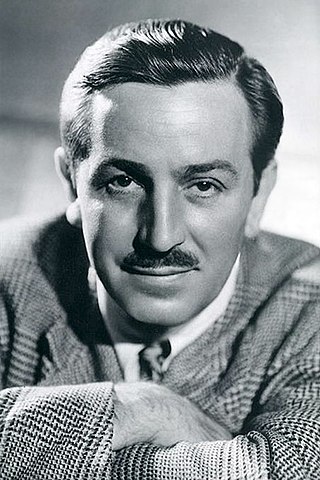


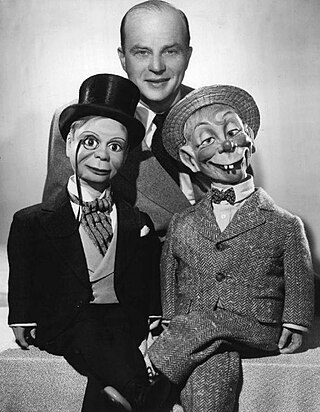







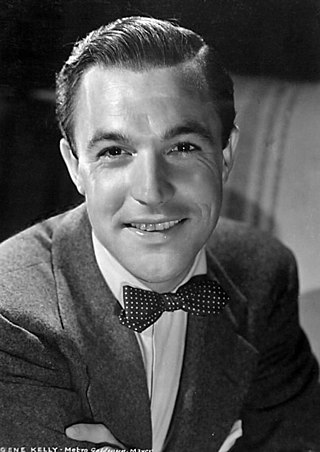







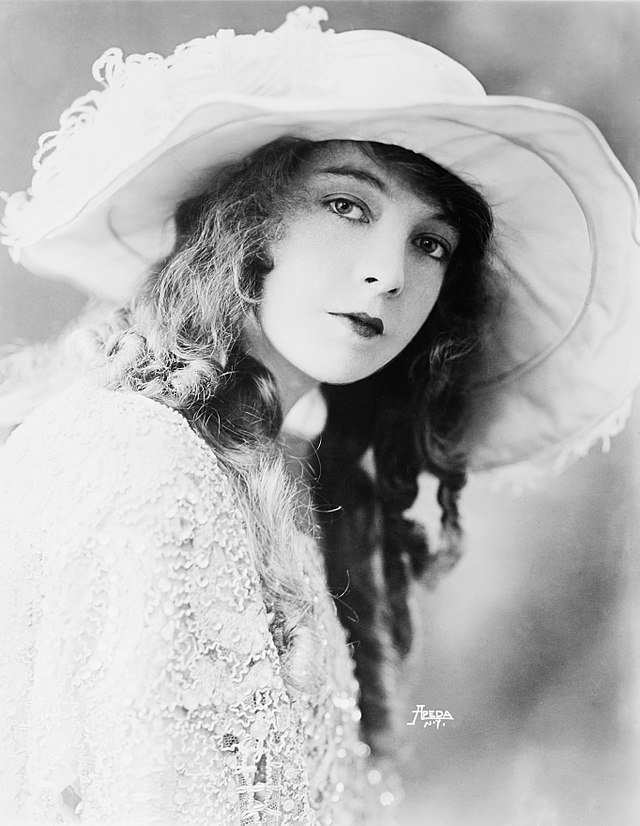


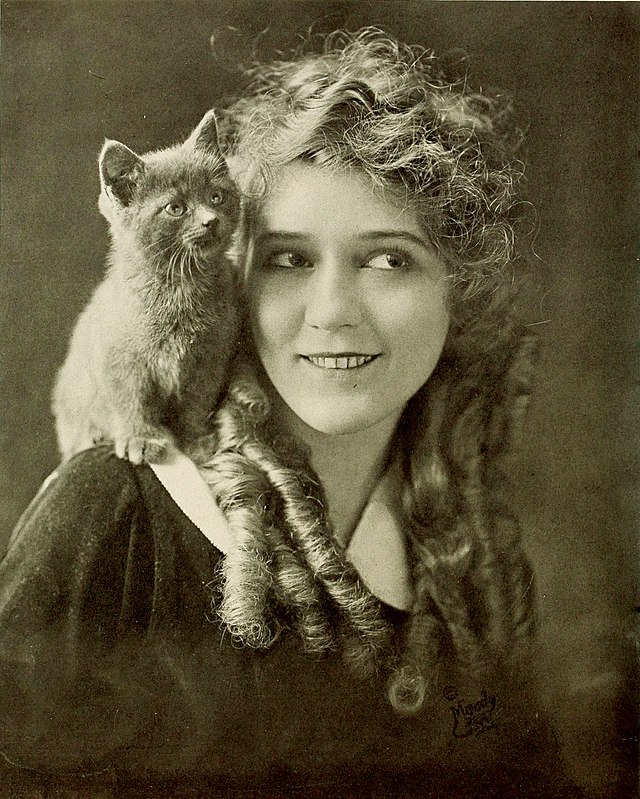
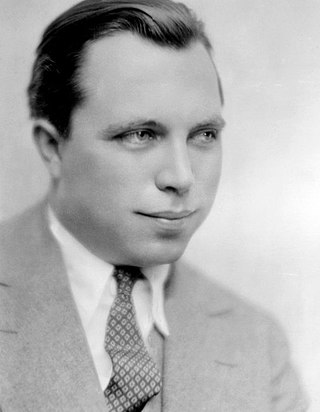








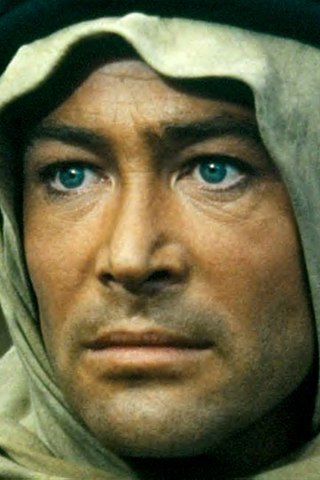



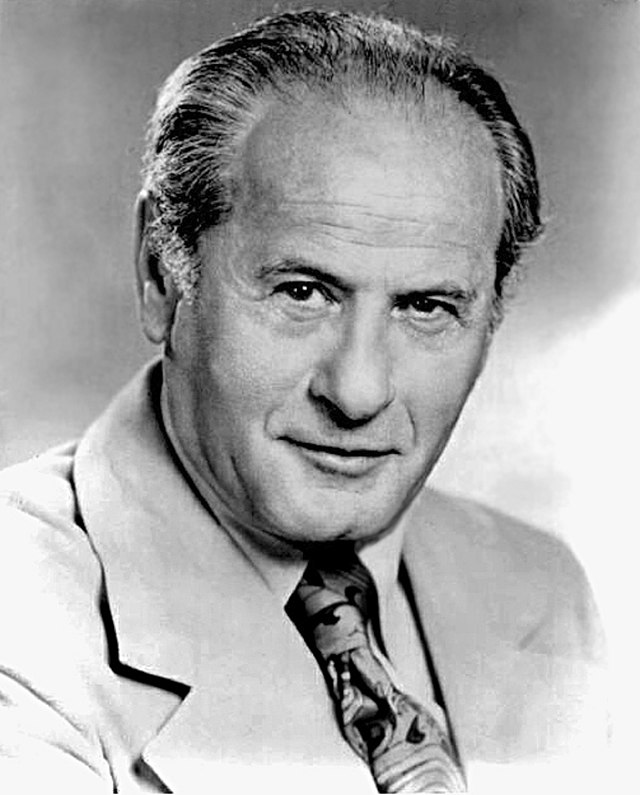







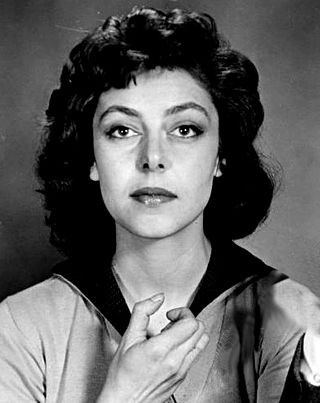

| Year | Recipient | Notes | Award Format |
|---|---|---|---|
| 1927/1928 | Warner Bros. | "for producing The Jazz Singer (1927), the pioneer outstanding talking picture, which has revolutionized the industry." | Statuette |
| Charlie Chaplin | "for acting, writing, directing, and producing The Circus (1928)."[8] |
1930s
| Year | Recipient | Notes | Award Format |
|---|---|---|---|
| 1931/1932 | Walt Disney | "for the creation of Mickey Mouse." | Statuette |
| 1934 | Shirley Temple | "in grateful recognition of her outstanding contribution to screen entertainment during the year 1934." | Miniature statuette |
| 1935 | D. W. Griffith | "For his distinguished creative achievements as director and producer and his invaluable initiative and lasting contributions to the progress of the motion picture arts." | Statuette |
| 1936 | The March of Time | "for its significance to motion pictures and for having revolutionized one of the most important branches of the industry – the newsreel." | — |
| W. Howard Greene and Harold Rosson | "for the color cinematography of the Selznick International Production, The Garden of Allah." | Plaque | |
| 1937 | Edgar Bergen | "for his outstanding comedy creation, 'Charlie McCarthy'." | Wooden statuette, with movable mouth |
| W. Howard Greene | "for the color photography of A Star Is Born." | Plaque | |
| Museum of Modern Art Film Library | "for its significant work in collecting films dating from 1895 to the present and for the first time making available to the public the means of studying the historical and aesthetic development of the motion picture as one of the major arts." | Scroll certificate | |
| Mack Sennett | "for his lasting contribution to the comedy technique of the screen, the basic principles of which are as important today as when they were first put into practice, the Academy presents a Special Award to that master of fun, discoverer of stars, sympathetic, kindly, understanding comedy genius – Mack Sennett." | Statuette | |
| 1938 | J. Arthur Ball | "for his outstanding contributions to the advancement of color in Motion Picture Photography." | Scroll |
| Walt Disney | "for Snow White and the Seven Dwarfs [1937], recognized as a significant screen innovation which has charmed millions and pioneered a great new entertainment field for the motion picture cartoon." | One statuette and seven miniature statuettes on a stepped base[9] | |
| Deanna Durbin and Mickey Rooney | "for their significant contribution in bringing to the screen the spirit and personification of youth, and as juvenile players setting a high standard of ability and achievement." | Miniature statuette | |
| Gordon Jennings, Jan Domela, Devereaux Jennings, Irmin Roberts, Art Smith, Farciot Edouart, Loyal Griggs, Loren L. Ryder, Harry D. Mills, Louis Mesenkop, Walter Oberst | "for outstanding achievement in creating Special Photographic and Sound Effects in the Paramount production, Spawn of the North." | Plaque | |
| Oliver T. Marsh and Allen Davey | "for the color cinematography of the Metro-Goldwyn-Mayer production, Sweethearts." | ||
| Harry Warner | "in recognition of patriotic service in the production of historical short subjects presenting significant episodes in the early struggle of the American people for liberty." | Scroll | |
| 1939 | Douglas Fairbanks | "recognizing the unique and outstanding contribution of Douglas Fairbanks, first President of the Academy, to the international development of the motion picture." | Statuette |
| Judy Garland | "for her outstanding performance as a screen juvenile during the past year." | Miniature statuette | |
| William Cameron Menzies | "for outstanding achievement in the use of color for the enhancement of dramatic mood in the production of Gone with the Wind." | Plaque | |
| Motion Picture Relief Fund | acknowledging the outstanding services to the industry during the past year of the Motion Picture Relief Fund and its progressive leadership. Presented to Jean Hersholt, President; Ralph Morgan, Chairman of the Executive Committee; Ralph Block, First Vice-President; and Conrad Nagel. | ||
| Technicolor USA | "for its contributions in successfully bringing three-color feature production to the screen." | Statuette |
1940s
| Year | Recipient | Notes | Award Format |
|---|---|---|---|
| 1940 | Bob Hope | "in recognition of his unselfish services to the Motion Picture Industry." | Silver plaque |
| Nathan Levinson | "for his outstanding service to the industry and the Army during the past nine years, which has made possible the present efficient mobilization of the motion picture industry facilities for the production of Army Training Films." | Statuette | |
| 1941 | Walt Disney, William Garity, John N. A. Hawkins, and the RCA Manufacturing Company | "for their outstanding contribution to the advancement of the use of sound in motion pictures through the production of Fantasia." | Certificate of Merit |
| Leopold Stokowski and his associates | "for their unique achievement in the creation of a new form of visualized music in Walt Disney's production, Fantasia, thereby widening the scope of the motion picture as entertainment and as an art form. " | ||
| Rey Scott | "for his extraordinary achievement in producing Kukan, the film record of China's struggle, including its photography with a 16mm camera under the most difficult and dangerous conditions.[10]" | ||
| British Ministry of Information | "for its vivid and dramatic presentation of the heroism of the RAF in the documentary film, Target for Tonight. | ||
| 1942 | Charles Boyer | "for his progressive cultural achievement in establishing the French Research Foundation in Los Angeles as a source of reference for the Hollywood Motion Picture Industry" | |
| Noël Coward | "for his outstanding production achievement in In Which We Serve" | ||
| Metro-Goldwyn-Mayer | "for its achievement in representing the American Way of Life in the production of the 'Andy Hardy' series of films." | ||
| 1943 | George Pal | "for the development of novel methods and techniques in the production of short subjects known as Puppetoons." | Plaque; replaced with statuette in 1967 |
| 1944 | Bob Hope | "for his many services to the Academy." | Life membership in the Academy of Motion Picture Arts and Sciences[11] |
| Margaret O'Brien | "outstanding child actress of 1944." | Miniature Statuette (presented in 1946) | |
| 1945 | Republic Studio, Daniel J. Bloomberg and the Republic Studio Sound Department | "for the building of an outstanding musical scoring auditorium which provides optimum recording conditions and combines all elements of acoustic and engineering design. | Certificate (presented in 1946) |
| Walter Wanger | "for his six years service as President of the Academy of Motion Picture Arts and Sciences." | Special Plaque | |
| The House I Live In | tolerance short subject; produced by Frank Ross and Mervyn LeRoy; directed by Mervyn LeRoy; screenplay by Albert Maltz; song "The House I Live In", music by Earl Robinson, lyrics by Lewis Allan; starring Frank Sinatra; released by RKO Radio. | Certificate | |
| Peggy Ann Garner | "outstanding child actress of 1945." | Miniature Statuette (presented in 1947) | |
| 1946 | Harold Russell | "for bringing hope and courage to his fellow veterans through his appearance in The Best Years of Our Lives" | Statuette |
| Laurence Olivier | "for his outstanding achievement as actor, producer and director in bringing Henry V to the screen." | ||
| Ernst Lubitsch | "for his distinguished contributions to the art of the motion picture." | Certificate | |
| Claude Jarman Jr. | "outstanding child actor of 1946" | Miniature Statuette | |
| 1947 | James Baskett | "for his able and heart-warming characterization of Uncle Remus, friend and story teller to the children of the world in Walt Disney's Song of the South." | Statuette[12] |
| Thomas Armat, Colonel William N. Selig, Albert E. Smith, and George Kirke Spoor | members of "the small group of pioneers whose belief in a new medium, and whose contributions to its development, blazed the trail along which the motion picture has progressed, in their lifetime, from obscurity to world-wide acclaim." | ||
| Bill and Coo | "in which artistry and patience blended in a novel and entertaining use of the medium of motion pictures." | Plaque; replaced with Statuette in 1976 | |
| Shoe-Shine (Italian: Sciuscià) | the high quality of this motion picture, brought to eloquent life in a country scarred by war, is proof to the world that the creative spirit can triumph over adversity. | Statuette[13] | |
| 1948 | Walter Wanger | "for distinguished service to the industry in adding to its moral stature in the world community by his production of the picture Joan of Arc." | |
| Monsieur Vincent | voted by the Academy Board of Governors as the most outstanding foreign language film released in the United States during 1948. | ||
| Sid Grauman | "master showman, who raised the standard of exhibition of motion pictures." | ||
| Adolph Zukor | "a man who has been called the father of the feature film in America, for his services to the industry over a period of forty years." | ||
| Ivan Jandl | "for the outstanding juvenile performance of 1948, as Karel Malik in The Search." | Miniature Statuette | |
| 1949 | Jean Hersholt | "in recognition of his service to the Academy during four terms as president." | Statuette on a square wood base[14] |
| Fred Astaire | "for his unique artistry and his contributions to the technique of musical pictures." | Statuette | |
| Cecil B. DeMille | "distinguished motion picture pioneer for 37 years of brilliant showmanship." | ||
| The Bicycle Thief (Italian: Ladri di biciclette) | voted by the Academy Board of Governors as the most outstanding foreign language film released in the United States during 1949. | ||
| Bobby Driscoll | "as the outstanding juvenile actor of 1949." | Miniature Statuette |
1950s
| Year | Recipient | Notes | Award Format |
|---|---|---|---|
| 1950 | Louis B. Mayer | "for distinguished service to the motion picture industry." | Statuette |
| George Murphy | "for his services in interpreting the film industry to the country at large." | ||
| The Walls of Malapaga (Italian: Le mura di Malapaga, French: Au-delà des grilles) | voted by the Board of Governors as the most outstanding foreign language film released in the United States in 1950. | ||
| 1951 | Gene Kelly | "in appreciation of his versatility as an actor, singer, director and dancer, and specifically for his brilliant achievements in the art of choreography on film." | |
| Rashomon | voted by the Board of Governors as the most outstanding foreign language film released in the United States during 1951. | ||
| 1952 | Merian C. Cooper | "for his many innovations and contributions to the art of motion pictures." | |
| Bob Hope | "for his contribution to the laughter of the world, his service to the motion picture industry, and his devotion to the American premise." | ||
| Harold Lloyd | "master comedian and good citizen." | ||
| George Mitchell | "for the design and development of the camera which bears his name and for his continued and dominant presence in the field of cinematography." | ||
| Joseph M. Schenck | "for long and distinguished service to the motion picture industry." | ||
| Forbidden Games (French: Jeux interdits) | Best Foreign Language Film first released in the United States during 1952. | ||
| 1953 | Twentieth Century-Fox Film Corporation | "in recognition of their imagination, showmanship and foresight in introducing the revolutionary process known as CinemaScope." | |
| Bell and Howell Company | "for their pioneering and basic achievements in the advancement of the motion picture industry." | ||
| Joseph Breen | "for his conscientious, open-minded and dignified management of the Motion Picture Production Code" | ||
| Pete Smith | "for his witty and pungent observations on the American scene in his series of 'Pete Smith Specialties'." | ||
| 1954 | Bausch & Lomb Optical Company | "for their contributions to the advancement of the motion picture industry." | |
| Danny Kaye | "for his unique talents, his service to the Academy, the motion picture industry, and the American people." | ||
| Kemp Niver | "for the development of the Renovare Process which has made possible the restoration of the Library of Congress Paper Film Collection." | ||
| Greta Garbo | "for her unforgettable screen performances." | ||
| Jon Whiteley | "for his outstanding juvenile performance in The Little Kidnappers" | Miniature Statuette | |
| Vincent Winter | "for his outstanding juvenile performance in The Little Kidnappers" | ||
| Gate of Hell (Japanese: Jigokumon) | Best Foreign Language Film first released in the United States during 1954. | Statuette | |
| 1955 | Samurai, The Legend of Musashi | Best Foreign Language Film first released in the United States during 1955. | |
| 1956 | Eddie Cantor | "for distinguished service to the film industry." | |
| 1957 | Society of Motion Picture and Television Engineers (SMPTE) | "for their contributions to the advancement of the motion picture industry." | |
| Gilbert M. "Broncho Billy" Anderson | "motion picture pioneer, for his contributions to the development of motion pictures as entertainment." | ||
| Charles Brackett | "for outstanding service to the Academy." | ||
| B. B. Kahane | "for distinguished service to the motion picture industry." | ||
| 1958 | Maurice Chevalier | "for his contributions to the world of entertainment for more than half a century." | |
| 1959 | Buster Keaton | "for his unique talents which brought immortal comedies to the screen." | |
| Lee de Forest | "for his pioneering inventions which brought sound to the motion picture." |
1960s
| Year | Recipient | Notes | Award Format |
|---|---|---|---|
| 1960 | Gary Cooper | "for his many memorable screen performances and the international recognition he, as an individual, has gained for the motion picture industry." | Statuette |
| Stan Laurel | "for his creative pioneering in the field of cinema comedy." | ||
| Hayley Mills | "for Pollyanna, the most outstanding juvenile performance during 1960." | Miniature Statuette | |
| 1961 | William L. Hendricks | "for his outstanding patriotic service in the conception, writing and production of the Marine Corps film, A Force in Readiness, which has brought honor to the Academy and the motion picture industry." | Statuette |
| Fred L. Metzler | "for his dedication and outstanding service to the Academy of Motion Picture Arts and Sciences." | ||
| Jerome Robbins | "for his brilliant achievements in the art of choreography on film." | ||
| 1964 | William J. Tuttle | "for his outstanding make-up achievement for 7 Faces of Dr. Lao." | |
| 1965 | Bob Hope | "for unique and distinguished service to our industry and the Academy." | Gold Medal |
| 1966 | Yakima Canutt | "for achievements as a stunt man and for developing safety devices to protect stunt men everywhere." | Statuette |
| Y. Frank Freeman | "for unusual and outstanding service to the Academy during his thirty years in Hollywood." | ||
| 1967 | Arthur Freed | "for distinguished service to the Academy and the production of six top-rated Awards telecasts." | |
| 1968 | John Chambers | "for his outstanding makeup achievement for Planet of the Apes." | |
| Onna White | "for her outstanding choreography achievement for Oliver!." | ||
| 1969 | Cary Grant | "for his unique mastery of the art of screen acting with the respect and affection of his colleagues." | |
1970s
| Year | Recipient | Presenter | Notes | Award Format |
|---|---|---|---|---|
| 1970 | Lillian Gish | Melvyn Douglas | "for superlative artistry and for distinguished contribution to the progress of motion pictures." | Statuette |
| Orson Welles | John Huston | "for superlative artistry and versatility in the creation of motion pictures." | ||
| 1971 | Charles Chaplin | Daniel Taradash | "for the incalculable effect he has had in making motion pictures the art form of this century." | |
| 1972 | Charles S. Boren | Richard Walsh | "Leader for 38 years of the industry's enlightened labor relations and architect of its policy of non-discrimination. With the respect and affection of all who work in films." | |
| Edward G. Robinson | Charlton Heston | "who achieved greatness as a player, a patron of the arts and a dedicated citizen...in sum, a Renaissance man. From his friends in the industry he loves." | ||
| 1973 | Henri Langlois | Jack Valenti | "for his devotion to the art of film, his massive contributions in preserving its past and his unswerving faith in its future." | |
| Groucho Marx | Jack Lemmon | "in recognition of his brilliant creativity and for the unequalled achievements of the Marx Brothers in the art of motion picture comedy." | ||
| 1974 | Howard Hawks | John Wayne | "A master American filmmaker whose creative efforts hold a distinguished place in world cinema." | |
| Jean Renoir | Ingrid Bergman | "a genius who, with grace, responsibility and enviable devotion through silent film, sound film, feature, documentary and television, has won the world's admiration." | ||
| 1975 | Mary Pickford | Walter Mirisch | "in recognition of her unique contributions to the film industry and the development of film as an artistic medium." | |
| 1977 | Margaret Booth | Olivia de Havilland | "for her exceptional contribution to the art of film editing in the motion picture industry." | |
| 1978 | Walter Lantz | Robin Williams & Woody Woodpecker | "for bringing joy and laughter to every part of the world through his unique animated motion pictures." | |
| Laurence Olivier | Cary Grant | "for the full body of his work, for the unique achievements of his entire career and his lifetime of contribution to the art of film." | ||
| King Vidor | Audrey Hepburn | "for his incomparable achievements as a cinematic creator and innovator." | ||
| Museum of Modern Art Department of Film | Gregory Peck | "for the contribution it has made to the public's perception of movies as an art form." | ||
| 1979 | Hal Elias | Walter Mirisch | "for his dedication and distinguished service to the Academy of Motion Picture Arts and Sciences." | |
| Sir Alec Guinness | Dustin Hoffman | "for advancing the art of screen acting through a host of memorable and distinguished performances." | ||
1980s
| Year | Recipient | Presenter | Notes | Award Format |
|---|---|---|---|---|
| 1980 | Henry Fonda | Robert Redford | "the consummate actor, in recognition of his brilliant accomplishments and enduring contribution to the art of motion pictures." | Statuette |
| 1981 | Barbara Stanwyck | John Travolta | "for superlative creativity and unique contribution to the art of screen acting." | |
| 1982 | Mickey Rooney | Bob Hope | "in recognition of his 60 years of versatility in a variety of memorable film performances." | |
| 1983 | Hal Roach | Jackie Cooper | "in recognition of his unparalleled record of distinguished contributions to the motion picture art form." | |
| 1984 | James Stewart | Cary Grant | "for his fifty years of memorable performances. For his high ideals both on and off the screen. With the respect and affection of his colleagues." | |
| The National Endowment for the Arts | Glenn Close | "in recognition of its 20th anniversary and its dedicated commitment to fostering artistic and creative activity and excellence in every area of the arts." | ||
| 1985 | Paul Newman | Sally Field | "in recognition of his many and memorable compelling screen performances and for his personal integrity and dedication to his craft." | |
| Alex North | Quincy Jones | "in recognition of his brilliant artistry in the creation of memorable music for a host of distinguished motion pictures." | ||
| 1986 | Ralph Bellamy | Karl Malden | "for his unique artistry and his distinguished service to the profession of acting." | |
| 1988 | Eastman Kodak Company | "in recognition of the company's fundamental contributions to the art of motion pictures during the first century of film history." | ||
| National Film Board of Canada | Donald Sutherland & Kiefer Sutherland | "in recognition of its 50th anniversary and its dedicated commitment to originate artistic, creative and technological activity and excellence in every area of film making." | ||
| 1989 | Akira Kurosawa | Steven Spielberg & George Lucas | "for cinematic accomplishments that have inspired, delighted, enriched and entertained worldwide audiences and influenced filmmakers throughout the world." | |
1990s
| Year | Recipient | Presenter | Notes | Award Format |
|---|---|---|---|---|
| 1990 | Sophia Loren | Gregory Peck | "one of the genuine treasures of world cinema who, in a career rich with memorable performances, has added permanent luster to our art form." | Statuette |
| Myrna Loy | Anjelica Huston | "in recognition of her extraordinary qualities both on screen and off, with appreciation for a lifetime's worth of indelible performances." | ||
| 1991 | Satyajit Ray | Audrey Hepburn | "in recognition of his rare mastery of the art of motion pictures, and of his profound humanitarian outlook, which has had an indelible influence on filmmakers and audiences throughout the world." | |
| 1992 | Federico Fellini | Sophia Loren and Marcello Mastroianni | "in recognition of his cinematic accomplishments that have thrilled and entertained worldwide audiences." | |
| 1993 | Deborah Kerr | Glenn Close | "in appreciation for a full career's worth of elegant and beautifully crafted performances." | |
| 1994 | Michelangelo Antonioni | Jack Nicholson | "in recognition of his place as one of the cinema's master visual stylists." | |
| 1995 | Kirk Douglas | Steven Spielberg | "for 50 years as a creative and moral force in the motion picture community." | |
| Chuck Jones | Robin Williams | "for the creation of classic cartoons and cartoon characters whose animated lives have brought joy to our real ones for more than a half century." | ||
| 1996 | Michael Kidd | Julie Andrews | "in recognition of his services to the art of the dance in the art of the screen." | |
| 1997 | Stanley Donen | Martin Scorsese | "in appreciation of a body of work marked by grace, elegance, wit and visual innovation." | |
| 1998 | Elia Kazan | Martin Scorsese, & Robert De Niro | "in appreciation of a long, distinguished and unparalleled career during which he has influenced the very nature of filmmaking through his creation of cinematic masterpieces." | |
| 1999 | Andrzej Wajda | Jane Fonda | "in recognition of five decades of extraordinary film direction." | |
2000s
| Year | Recipient | Presenter | Notes | Award Format |
|---|---|---|---|---|
| 2000 | Jack Cardiff | Dustin Hoffman | "master of light and color." | Statuette |
| Ernest Lehman | Julie Andrews | "in appreciation of a body of varied and enduring work." | ||
| 2001 | Sidney Poitier | Denzel Washington | "in recognition of his remarkable accomplishments as an artist and as a human." | |
| Robert Redford | Barbra Streisand | "Actor, director, producer, creator of Sundance, inspiration to independent and innovative filmmakers everywhere." | ||
| 2002 | Peter O'Toole | Meryl Streep | "whose remarkable talents have provided cinema history with some of its most memorable characters." | |
| 2003 | Blake Edwards | Jim Carrey | "in recognition of his writing, directing and producing an extraordinary body of work for the screen." | |
| 2004 | Sidney Lumet | Al Pacino | "in recognition of his brilliant services to screenwriters, performers and the art of the motion picture." | |
| 2005 | Robert Altman | Meryl Streep & Lily Tomlin | "in recognition of a career that has repeatedly reinvented the art form and inspired filmmakers and audiences alike." | |
| 2006 | Ennio Morricone | Clint Eastwood | "in recognition of his magnificent and multifaceted contributions to the art of film music." | |
| 2007 | Robert F. Boyle | Nicole Kidman | "in recognition of one of cinema's great careers in art direction." | |
| 2009 | Lauren Bacall | Anjelica Huston | "in recognition of her central place in the Golden Age of motion pictures." | |
| Roger Corman | Jonathan Demme & Quentin Tarantino | "for his rich engendering of films and filmmakers." | ||
| Gordon Willis | Caleb Deschanel | "for unsurpassed mastery of light, shadow, color and motion." | ||
2010s
| Year | Recipient | Presenter | Notes | Award Format |
|---|---|---|---|---|
| 2010 | Kevin Brownlow | Kevin Spacey | "for the wise and devoted chronicling of the cinematic parade." | Statuette |
| Jean-Luc Godard | — | "for passion. for confrontation. for a new kind of cinema." | ||
| Eli Wallach | Clint Eastwood | "for a lifetime's worth of indelible screen characters." | ||
| 2011 | James Earl Jones | Ben Kingsley | "for his legacy of consistent excellence and uncommon versatility" | |
| Dick Smith | Rick Baker | "for his unparalleled mastery of texture, shade, form and illusion" | ||
| 2012 | D. A. Pennebaker | Michael Moore | "..[H]as inspired generations of filmmakers with his "you are here" style. He is considered one of the founders of the cinéma vérité movement..." | |
| Hal Needham | Quentin Tarantino | "A pioneer in improving stunt technology and safety procedures..." | ||
| George Stevens Jr. | Sidney Poitier | "A tireless champion of the arts in America and especially that most American of arts: the Hollywood film" | ||
| 2013 | Angela Lansbury | Robert Osborne | "an entertainment icon who has created some of cinema's most memorable characters, inspiring generations of actors." | |
| Steve Martin | Tom Hanks | "in recognition of his extraordinary talents and the unique inspiration he has brought to the art of motion pictures." | ||
| Piero Tosi | Jeffrey Kurland presented the award to Claudia Cardinale on Tosi's behalf | "a visionary whose incomparable costume designs shaped timeless, living art in motion pictures." | ||
| 2014 | Jean-Claude Carrière | Philip Kaufman | "To Jean-Claude Carrière, whose elegantly crafted screenplays elevate the art of screenwriting to the level of literature." | |
| Hayao Miyazaki | John Lasseter | "has deeply influenced animation forever, inspiring generations of artists to work in our medium and illuminate its limitless potential..." | ||
| Maureen O'Hara | Clint Eastwood and Liam Neeson | "One of Hollywood's brightest stars, whose inspiring performances glowed with passion, warmth and strength." | ||
| 2015 | Spike Lee | Denzel Washington, Samuel L. Jackson, & Wesley Snipes | "a champion of independent film and an inspiration to young filmmakers" | |
| Gena Rowlands | Nick Cassavetes | "an original talent whose devotion to her craft has earned her worldwide recognition as an independent film icon" | ||
| 2016 | Jackie Chan | Chris Tucker | "Chan starred in – and sometimes wrote, directed and produced – more than 30 martial arts features in his native Hong Kong, charming audiences with his dazzling athleticism, inventive stunt work and boundless charisma." | |
| Lynn Stalmaster | Jeff Bridges | "over five decades, he applied his talents to more than 200 feature films... and has been instrumental in the careers of celebrated actors" | ||
| Anne V. Coates | Richard Gere | "in her more than 60 years as a film editor, she has worked side by side with many leading directors on an impressive range of films" | ||
| Frederick Wiseman | Ben Kingsley | "Wiseman has made one film almost every year since 1967, illuminating lives in the context of social, cultural and government institutions" | ||
| 2017[15] | Charles Burnett | Ava DuVernay | "a resolutely independent and influential film pioneer who has chronicled the lives of black Americans with eloquence and insight" | |
| Owen Roizman | Dustin Hoffman | "his expansive visual style and technical innovation have advanced the art of cinematography" | ||
| Donald Sutherland | Jennifer Lawrence | "for a lifetime of indelible characters, rendered with unwavering truthfulness" | ||
| Agnès Varda | Angelina Jolie | "her compassion and curiosity inform a uniquely personal cinema" | ||
| 2018[16] | Marvin Levy | Tom Hanks, Laura Dern | "for an exemplary career in publicity that has brought films to the minds, hearts and souls of audiences all over the world" | |
| Lalo Schifrin | Clint Eastwood | "in recognition of his unique musical style, compositional integrity and influential contributions to the art of film scoring" | ||
| Cicely Tyson | Ava DuVernay | "whose unforgettable performances and personal integrity have inspired generations of filmmakers, actors and audiences" | ||
| 2019[17] | David Lynch | Isabella Rosselini, Laura Dern, & Kyle MacLachlan | "for fearlessly breaking boundaries in pursuit of his singular cinematic vision." | |
| Wes Studi | Christian Bale | "in recognition of the power and craft he brings to his indelible film portrayals and for his steadfast support of the Native American community." | ||
| Lina Wertmüller | Greta Gerwig & Jane Campion | "for her provocative disruption of political and social norms delivered with bravery through her weapon of choice: the camera lens." | ||
2020s
| Year | Recipient | Presenter | Notes | Award Format |
|---|---|---|---|---|
| 2021 [18] |
Samuel L. Jackson | Denzel Washington[19][20] | "whose dynamic performances resonate across genres and generations of audiences worldwide." | Statuette |
| Elaine May | Bill Murray [20][19] |
"writer, director, performer, pioneer whose bracing comedic spark illuminates us all." | ||
| Liv Ullmann | John Lithgow[20][19] | "for her deeply affecting screen portrayals and lifelong commitment to exploring the human condition." | ||
| 2022 [21][22] |
Euzhan Palcy | Viola Davis[23] | "a masterful filmmaker who broke ground for Black women directors and inspired storytellers of all kinds across the globe." | |
| Diane Warren | Cher[23] | "for her genius, generosity and passionate commitment to the power of song in film." | ||
| Peter Weir | Jeff Bridges[23] | "a fearless and consummate filmmaker who has illuminated the human experience with his unique and expansive body of work." | ||
| 2023 [24] |
Angela Bassett | Regina King | "Across her decades-long career, Angela Bassett has continued to deliver transcendent performances that set new standards in acting" | |
| Mel Brooks | Nathan Lane & Matthew Broderick | "Mel Brooks lights up our hearts with his humor, and his legacy has made a lasting impact on every facet of entertainment" | ||
| Carol Littleton | Glenn Close | "Littleton's career in film editing serves as a model for those who come after her" | ||
- "Honorary Award: About". Academy of Motion Picture Arts and Sciences. 17 July 2014. Retrieved 2017-02-27.
- Academy of Motion Picture Arts and Sciences. "About Academy Awards: Honorary Award". Official Academy Award Website. Academy of Motion Picture Arts and Sciences (AMPAS) Oscars.org. Archived from the original (Web) on 2008-04-09. Retrieved 2008-07-29.
The Academy's Honorary Award is given to honor extraordinary distinction in lifetime achievement, exceptional contributions to the state of motion picture arts and sciences, or for outstanding service to the Academy. It is given at the discretion of the Board of Governors and is not necessarily given every year, although the last year it was not given before 2008 was 1987.
- Academy of Motion Picture Arts and Sciences. "About Academy Awards: Honorary Award". Official Academy Award Website. Academy of Motion Picture Arts and Sciences (AMPAS), Oscars.org. Archived from the original (Web) on 2008-04-09. Retrieved 2008-08-01.
The Honorary Award can also take the form of a life membership in the Academy, a scroll, a medal, a certificate or any other design chosen by the Bord of Governors. The John A. Bonner Medal of Commendation, given for 'outstanding service and dedication in upholding the high standards of the Academy,' is considered an Honorary Award. It is usually given at the annual presentation of Scientific and Technical Awards, a dinner ceremony separate from the annual telecast.
- Academy of Motion Picture Arts and Sciences. "Special Achievement Award". Official Academy Award Website. Academy of Motion Picture Arts and Sciences (AMPAS), Oscars.org. Archived from the original (Web) on 2008-01-07. Retrieved 2008-07-29.
The Special Achievement Award, an Oscar statuette, is given for an achievement which makes an exceptional contribution to the motion picture for which it was created, but for which there is no annual award category. ... Unlike an Honorary Award, a Special Achievement Award is conferred only for achievements in films which meet the Academy's eligibility year and deadline requirements.... In the Makeup and Sound Effects Editing categories, the Award can be given if those committees fail to come up with three nominations. In that case the committee may recommend to the Board of Governors that a special Achievement Award be voted instead. That was the case in the Visual Effects category, too, before Visual Effects became an annual award.... Thirteen of the 17 Special Achievement Awards given since the category was instituted in 1972 were given for visual effects or sound effects achievements.
- Academy of Motion Picture Arts and Sciences. "About Academy Awards: Honorary Award". Official Academy Award Website. Academy of Motion Picture Arts and Sciences (AMPAS), Oscars.org. Archived from the original (Web) on 2008-04-09. Retrieved 2008-08-01.
"The Honorary Award is not called a lifetime achievement award by the Academy, but it is often given for a life's work in filmmaking – to Polish director Andrzej Wajda in 1999, for example, and to Elia Kazan the previous year [1998].... The Honorary Award also may be given for outstanding service to the Academy. The last time this happened, however, was in 1979, when an Oscar statuette was presented to Academy Governor Hal Elias, who had served more than a quarter century on the Board of Governors.
- The Academy Honorary Award is often awarded in preference to those with noted achievements in motion pictures who have nevertheless never won an Academy Award. Thus, many of its recipients are Classic Hollywood stars, such as Lillian Gish, Barbara Stanwyck, Kirk Douglas, and Lauren Bacall. Among its Honorary Awards for acting, the Academy also presents deserving young actors with the Special Juvenile Academy Award. (Most of those are not listed here; some of the early "Special Awards" that later became known in that acting category as the "Special Juvenile Academy Award" are listed with "Special Award" added parenthetically.)
- Following the searchable Official Academy Award Database (a primary source for this list), years listed are the years of the Academy Awards ceremony when the award was presented (with the annual award ceremony following within parentheses, as documented in the Official Academy Award Database).
- Removing him from the contests in which he had been nominated for an Academy Award in the "competitive classes", the Academy gave Chaplin this "Special Award" because, as it wrote to him, his "collective accomplishments" in The Circus merited his placement "in a class" by himself.
"Special Award to Charles Chaplin". Official Academy Award Database. AMPAS, Oscars.org. Archived from the original (Web) on January 12, 2012. Retrieved 2008-07-29.[NOTE: The Academy Board of Judges on merit awards for individual achievements in motion picture arts during the year ending August 1, 1928, unanimously decided that your name should be removed from the competitive classes, and that a special first award be conferred upon you for writing, acting, directing and producing The Circus. The collective accomplishments thus displayed place you in a class by yourself." (Letter from the Academy to Mr. Chaplin, dated February 19, 1929.)]
- "Walt Disney's Oscars® | the Walt Disney Family Museum". Archived from the original on 2015-03-22. Retrieved 2015-12-17.
- Bosley Crowther (1941-06-24). "Movie Review: 'Kukan,' a Vivid Fact Film about Modern China and Its Myriad Peoples, Is Seen at the World" (Web). The New York Times, Movies. movies.nytimes.com. Retrieved 2008-07-30. Crowther refers to filmmaker as a "young newspaperman, Rey Scott" in the text of this review; credits (at foot of page) describe this film as "A travel picture filmed in color in China and narrated by Ray [sic] Scott.
- Academy of Motion Picture Arts and Sciences. "Honorary Award". Official Academy Awards Database. AMPAS, Oscars.org. Archived from the original (Web) on 28 August 2008. Retrieved 2008-07-29. (Page 2 of 2 pages); cf. Awards Database.
- This "Special Award", which Baskett received at the 20th Academy Awards ceremony, held on March 20, 1948, effectively removed him from contention [citation needed] for a best actor award for his role of Uncle Remus; he died of heart disease on July 9, 1948.
- Academy of Motion Picture Arts and Sciences. "From Amarcord to Z". AMPAS. Oscars.org. Archived from the original (Web) on 2013-04-15. Retrieved 2008-07-29.
Posters From Fifty Years of Foreign Language Film Award Winners: January 19 through April 15, 2007, in the Academy's Grand Lobby Gallery. ... The history of the award actually goes back to 1947, when the Academy recognized Shoe-Shine, from war-scarred Italy, for offering 'proof to the world that the creative spirit can triumph over adversity.' The Academy presented seven more 'special' or 'honorary' foreign language film Oscars before officially establishing the category in 1956. That first competitive award went to Italy for La Strada. The exhibition, which has been assembled from the extensive poster collection of the Academy's Margaret Herrick Library, includes the posters for both Italian films.
- "[NOTE: Presented on "Jean Hersholt Night," June 26, 1949, at the Academy building.]" (Awards Database)
- Thompson, Anne (September 6, 2017). "Academy Announces Honorary Oscars, Reflecting Diversity: Agnes Varda, Charles Burnett, and More".
- Beachum, Paul Sheehan,Chris; Sheehan, Paul; Beachum, Chris (September 5, 2018). "Honorary Oscars: Cicely Tyson, Kathleen Kennedy, Frank Marshall, Marvin Levy, Lalo Schifrin chosen as 2018 awards recipients".
{{cite web}}: CS1 maint: multiple names: authors list (link) - Keegan, Rebecca (October 27, 2019). "Governors Awards: Honorees Lina Wertmüller, Geena Davis Call for Gender Parity in Hollywood". The Hollywood Reporter.
- "Oscars: Academy To Honor Danny Glover, Samuel L. Jackson, Elaine May & Liv Ullmann At 2022 Governors Awards". Deadline Hollywood. 24 June 2021. Retrieved 24 June 2021.
- Beckett, Lois (March 26, 2022). "'This is going to be cherished': Samuel L Jackson and Elaine May receive honorary Oscars". The Guardian. Retrieved March 26, 2022.
- Keegan, Rebecca (March 25, 2022). "Oscars: Governors Awards Honor Samuel L. Jackson, Elaine May, Liv Ullmann and Danny Glover". The Hollywood Reporter. Retrieved March 26, 2022.
- Hammond, Pete (June 21, 2022). "Governors Awards: Michael J. Fox, Diane Warren, Peter Weir & Euzhan Palcy Set For Academy Honors".
- Davis, Clayton (June 21, 2022). "Peter Weir, Diane Warren, Euzhan Palcy and Michael J. Fox to Receive Honorary Oscars at Governors Awards".
- Pond, Steve (November 20, 2022). "Governors Awards Mix Campaigning, Calls for Action and a Long-Awaited Oscar for Diane Warren".
- "Angela Bassett Finally Gets Her Oscar as Academy Announces 2023 Honorary Winners, Including Mel Brooks". Variety. 26 June 2023. Retrieved June 26, 2023.
- "Academy Award Statistics". Official Academy Awards Database. Accessed July 28, 2008.
- "Honorary Award". Academy of Motion Picture Arts and Sciences, oscars.org (official website). Accessed July 28, 2008. (2 pages.)
- "Honorary Awards: Special Awards and Honorary Awards". Searchable Awards Database. Official Academy Awards Database. Accessed July 28, 2008.
- Academy of Motion Picture Arts and Sciences – Official Website.
- The Official Academy Awards Database.